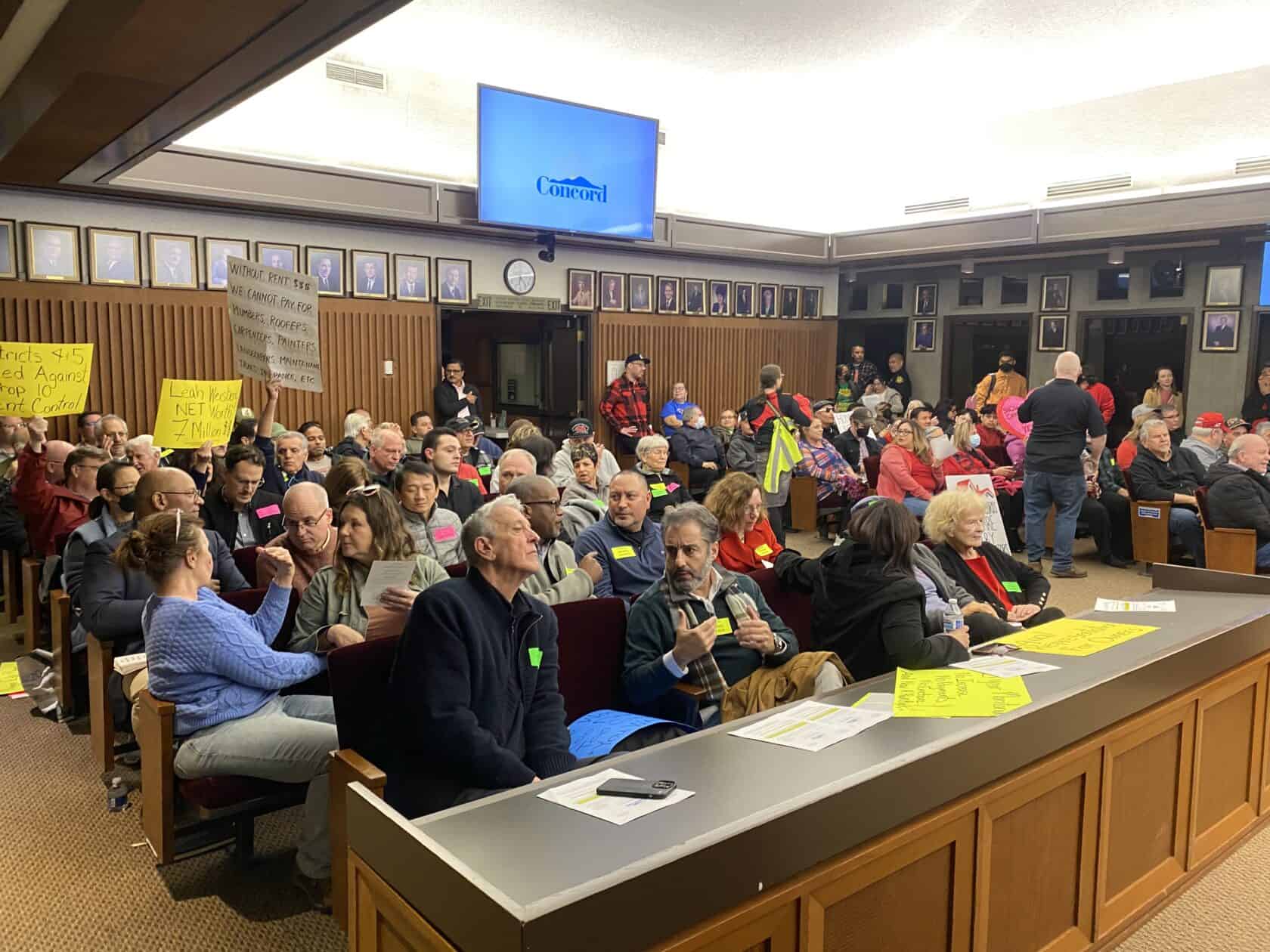In a move that culminates years of intense debate, the Concord City Council early Wednesday voted to implement a rent control and “just cause” eviction ordinance, despite continued opposition from the California Apartment Association and local property owners.
The council session witnessed intense debate and a divided crowd. The decision follows prolonged discussions and multiple council meetings since September 2023 that steadily increased the ordinance’s restrictiveness.

The new law will cap annual rent increases at the lower of 3% or 60% of the Consumer Price Index (CPI), applying specifically to multifamily units built before Feb. 1, 1995, in accordance with the Costa-Hawkins Rental Housing Act. This ordinance will apply differently to various types of housing. For instance, rented single-family homes and condominiums are subject to just cause eviction regulations but not to the proposed rent stabilization regulations. On the other hand, multifamily units built after Feb. 1, 1995, would be subject to just cause for eviction regulations but not local rent control. Some of these units, however, are covered by the rent cap under the California Tenant Protection Act (AB 1482).
The “just cause” eviction provisions in the ordinance apply more punitive criteria than the Tenant Protection Act, which already protects renters from excessive rent increases and unjust evictions, further limiting the ability of landlords to terminate tenancies when needed. These provisions also require landlords to cover certain moving expenses in “no fault” eviction scenarios, including the first and last month of contracted rent plus $2,000 for moving expenses, further adding to the financial burdens of property owners.
The ordinance would affect approximately 18,100 residential rental units in Concord, with 9,200 units fully covered and subject to both rent stabilization and just cause for eviction provisions, while the remaining 8,900 units are partially covered and only subject to just cause for eviction provisions. Additionally, the ordinance does not apply to accessory dwelling units and duplexes where the owner lives in one of the units.
CAA has consistently opposed the ordinance and its amendments, highlighting their unnecessary and punitive nature toward housing providers. CAA’s analysis of the city’s 2022 Residential Rent Registry Report indicates that 94% of tenancy terminations in 2022 were voluntary, not eviction. Moreover, a September 2023 report found that rents in Concord currently support households earning between 70% to 80% AMI, considered accessible to low- to moderate-income households and is generally accessible to working families.
Additionally, local housing providers have voiced concerns that the ordinance’s strict rent control and relocation fee provisions will lead to financial hardships for small landlords, discourage maintenance and investment in rental properties, and ultimately exacerbate Concord’s housing challenges.
The adoption of Concord’s rent control ordinance aligns with a statewide trend toward stricter rent regulations. Currently, the California Apartment Association is actively opposing proposed rent control initiatives in five California cities, including four in the Bay Area and one in the Central Valley.
These initiatives, targeted for the November 2024 ballot, mark a significant push for more local rent control measures despite the passage of a statewide rent cap and eviction protections under AB 1482, hailed as the nation’s strongest statewide renter-protection law. This movement is part of broader efforts challenging existing rental housing protection laws in California, such as the Costa-Hawkins Rental Housing Act. Notably, CAA is fighting a statewide ballot initiative that’s qualified for the fall ballot that would repeal Costa-Hawkins entirely.
As Concord prepares for the next phases of this ordinance’s implementation, the CAA remains steadfast in its commitment to advocating for the rights and interests of property owners, emphasizing the need for balanced and fair housing policies. The ordinance requires a second vote for ratification scheduled on March 5, which would allow further public testimonies. However, a second reading does not constitute a public hearing as it is often deemed a perfunctory function of public policy.
Rhovy Lyn Antonio, CAA’s senior vice president of local public affairs, expressed gratitude for the grassroots activism of property owners who continually voiced their concerns at council meetings and through letters.
“Although the council has turned a deaf ear to your concerns, we must remain undaunted against further attacks against the industry in Concord and across the state,” Antonio said. “Your continued efforts are vital in advocating for a sustainable and fair rental housing market.”

